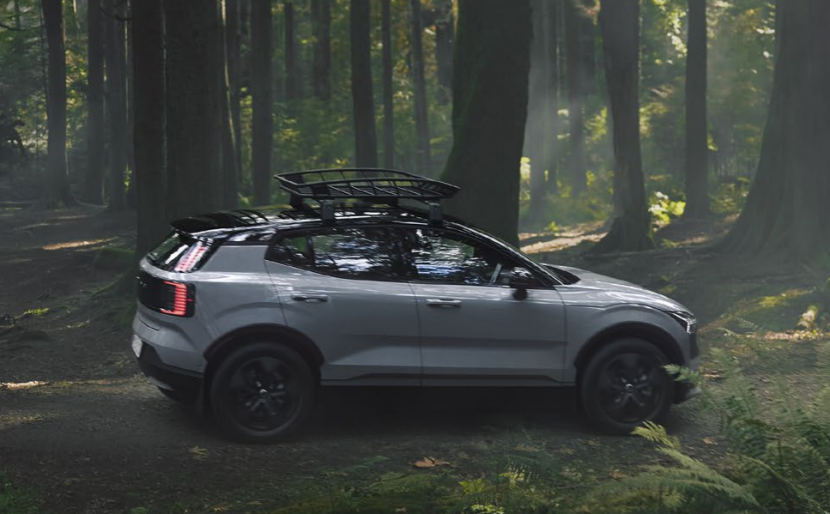On July 17, Swedish automaker Volvo Cars announced that its revenue in the second quarter reached 93.5 billion Swedish Krona, down from 101.5 billion Swedish Krona (approximately $9.58 billion) in the same period last year, representing an 8% year-over-year decline. The adjusted EBIT was 2.9 billion Swedish Krona, significantly lower than the 8 billion Swedish Krona reported a year ago but still exceeding market expectations. The adjusted EBIT margin was 3.1%, down from 7.9% in the same quarter last year. As a key indicator assessing the impact of tariffs, the company's gross margin fell from 22.8% a year ago and 18.2% in the first quarter to 13.5%, though it remained at 17.7% after adjustments for one-off items. In terms of retail sales, Volvo Cars sold a total of 181,600 vehicles in the second quarter, a 12% year-on-year decline, leading to a 9% decrease in sales for the first half of the year. Notably, Volvo Cars announced a $1.2 billion impairment charge on July 14, primarily related to delays in model launches and tariff impacts, resulting in an operating loss of 10 billion Swedish Krona. Volvo Cars was the first European automaker to release its Q2 earnings report this year. Analysts had anticipated a challenging financial quarter due to soft electric vehicle demand, increased competition from Chinese automakers, and heightened trade tensions. However, the decline in Volvo's Q2 profits did not trigger excessive concern, as the market had already factored in expectations of increased tariffs and sales declines, leading to nearly an 8% rise in Volvo's stock price following the earnings report, despite ongoing pressure from tariffs and weak demand. In its earnings statement, Volvo Cars noted, 'The market demand continues to be weak and volatile due to declining consumer confidence and the impact of new tariffs, which continues to pose challenges for the automotive industry.' Bernstein analysts pointed out that despite the unfavorable environment, Volvo Cars' financial performance in Q2 was better than expected. 'Given the weak positioning of investor allocations, this should be enough to trigger a positive market rebound.' After the earnings announcement, Volvo Cars CEO Hakan Samuelsson emphasized, 'If the EU advocates for free trade, we should take the lead in lowering tariffs to very low levels.' He also stated that the EU should reduce the 10% tariff on American-made cars and stressed that European automakers do not need tariff protection to compete with American rivals. For months, the EU and representatives of the automotive industry have been working to persuade the U.S. government to lower its 27.5% tariff on European-imported cars. President Trump has threatened to increase tariffs on cars imported from the EU to 30% starting August 1, intensifying pressure on the EU to reach an agreement with the U.S. Prior to Trump's administration, the tariff on European cars in the U.S. was 2.5%, while the EU imposed a 10% tariff on American cars, a practice that Samuelsson has previously described as unfair. It is worth noting that most of the cars Volvo sells in the U.S. are imported from Europe, making it one of the European automakers most affected by U.S. tariffs. The company plans to start production of two of its best-selling crossover models domestically in the U.S. in the coming years to avoid high tariffs on imported models, which have significantly eroded its profit margins. Additionally, due to declining market demand, the company has gradually phased out sedans and station wagons from its U.S. product line. Currently, Volvo Cars sells about half of its 13 global models in the U.S., and aside from the V60 station wagon, it will only sell SUVs in the U.S., meaning it will no longer offer sedans in that market. The 18 billion Swedish Krona cost-cutting plan is expected to be fully realized by 2026. Earlier this year, Volvo Cars launched a cost and cash flow adjustment plan worth 18 billion Swedish Krona, which has started to show results and is expected to be fully effective by 2026. The company is currently executing a plan to cut 3,000 jobs globally, with about 1,100 positions already eliminated. In terms of direct cost reductions, Volvo Cars has begun implementing several measures to reduce material costs; a key point is strengthening synergies with Geely, particularly in procurement. Another area of cooperation is the joint development of new models specifically targeting the Chinese market. Volvo Cars has also effectively implemented cash flow measures, including reducing working capital and slowing down investment pace. Furthermore, as most analysts expect that by 2030, demand for pure electric vehicles will continue to grow and exceed that of traditional internal combustion engine vehicles, Volvo Cars remains firmly focused on electrification in most of its R&D efforts. The company will also update its plug-in hybrid vehicles to provide attractive transitional solutions for customers and regions where charging infrastructure is still inadequate. The company is set to launch its first plug-in hybrid model, the new XC70, and plans to start production in the third quarter of this year. This is a response to the growing demand for such models, and it is reported that the XC70 will be launched first in the Chinese market, as Volvo Cars sees significant market potential for this model in China.
Volvo Reports Q2 Earnings, Faces Challenges Amidst Weak Demand and Tariffs

Share this post on: